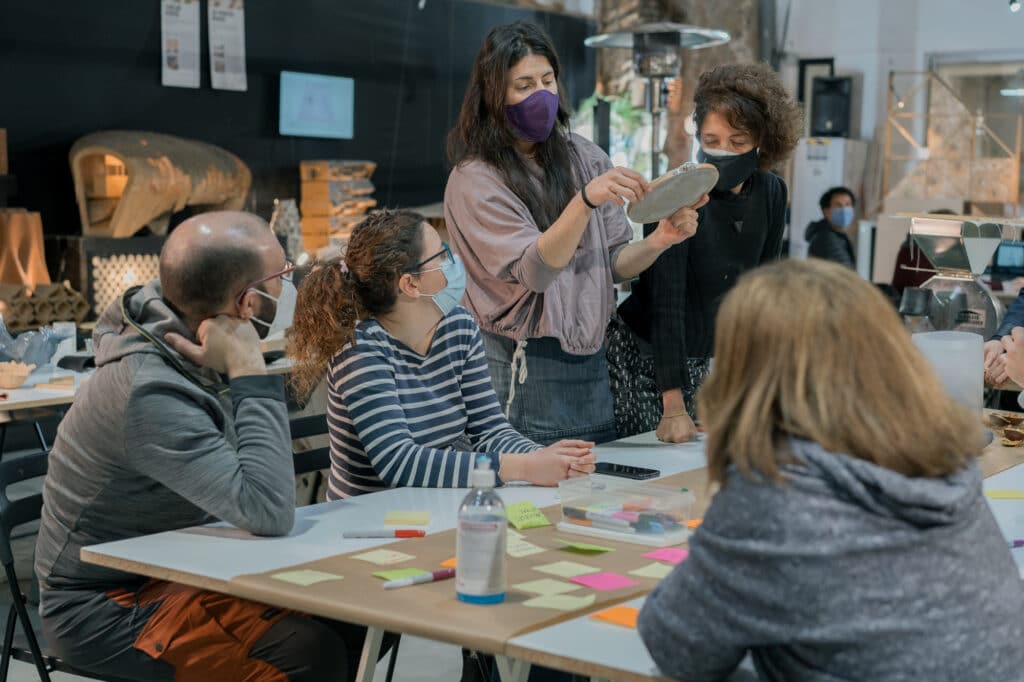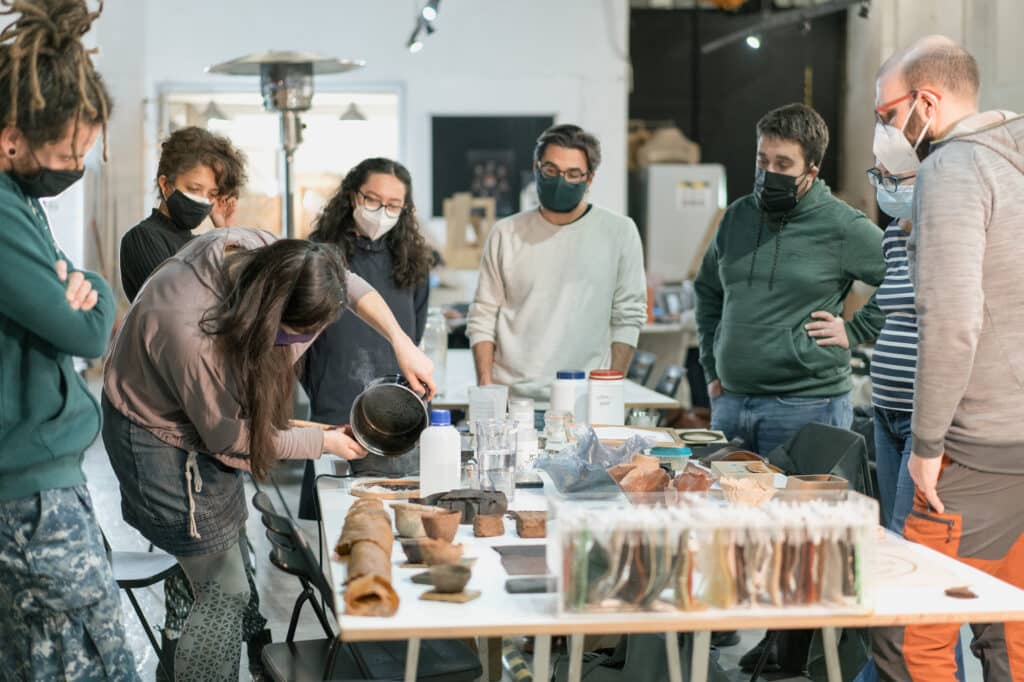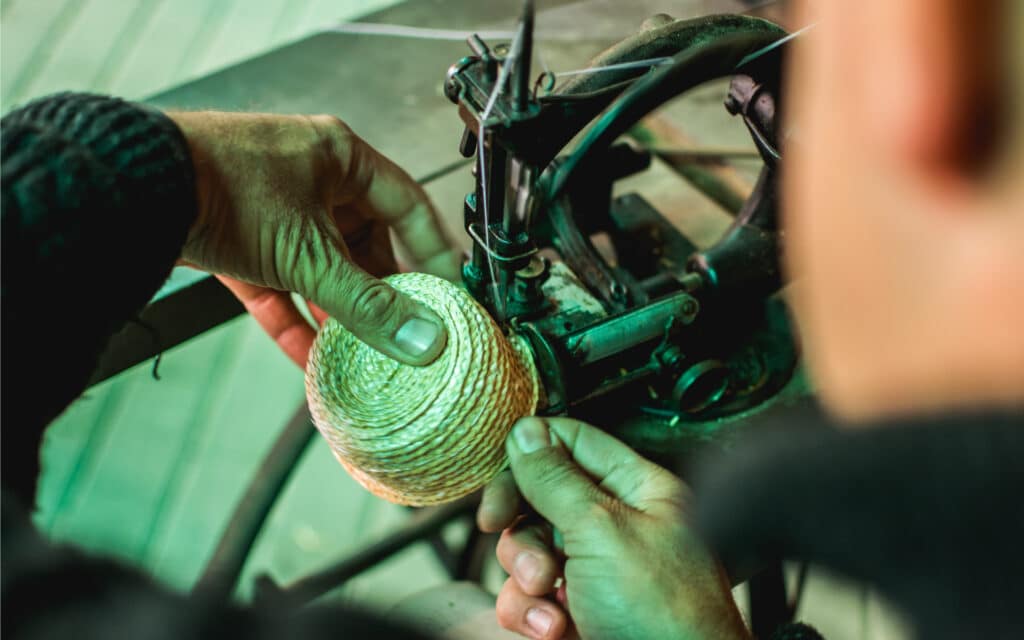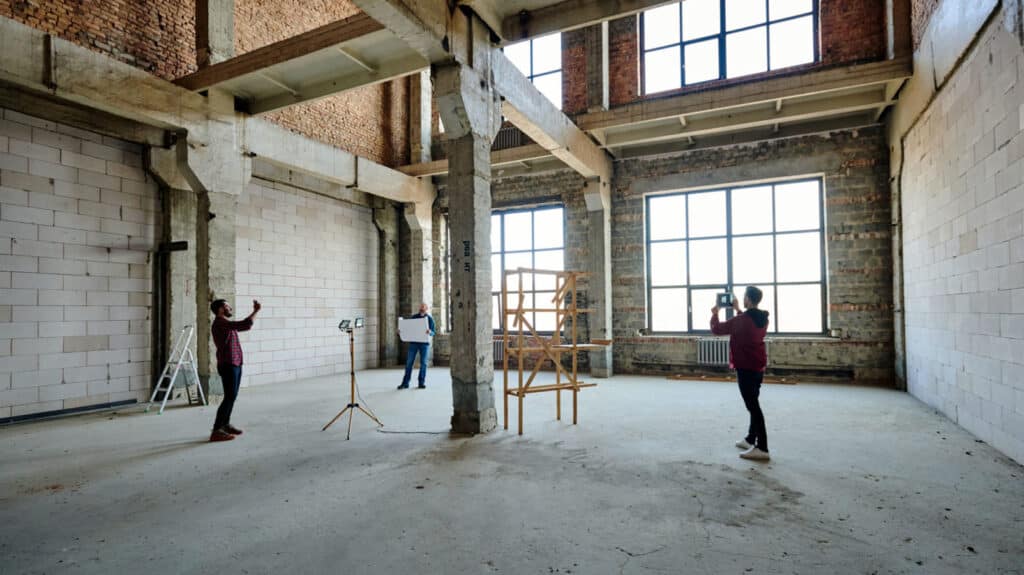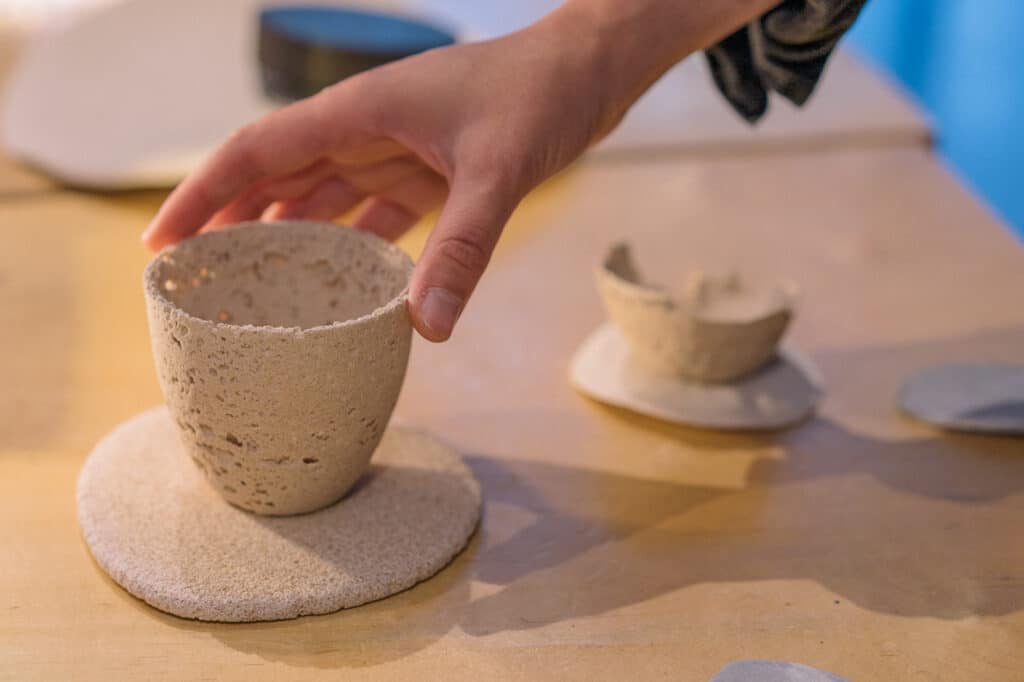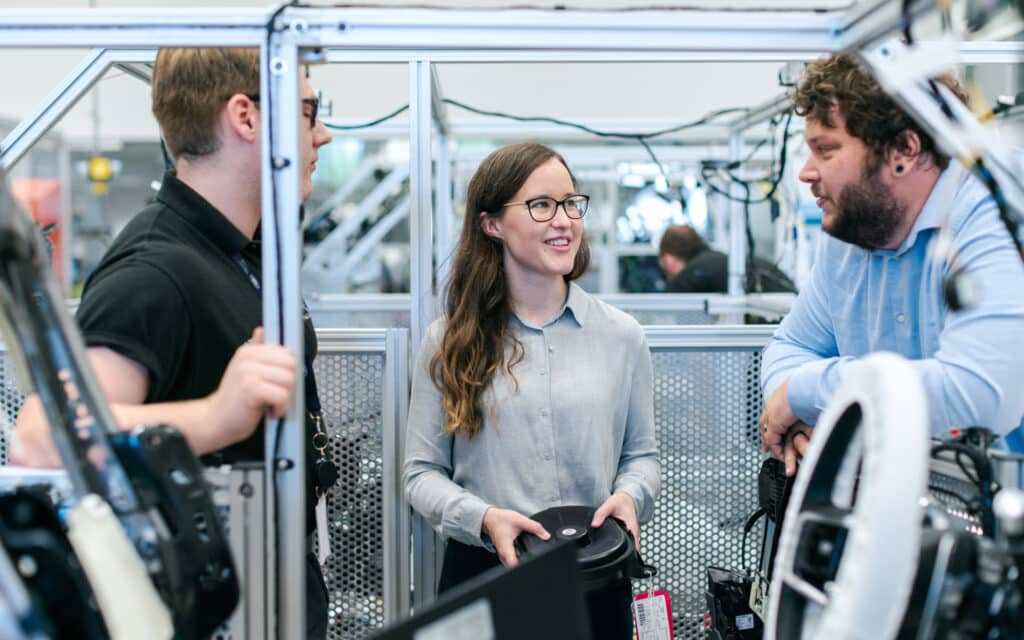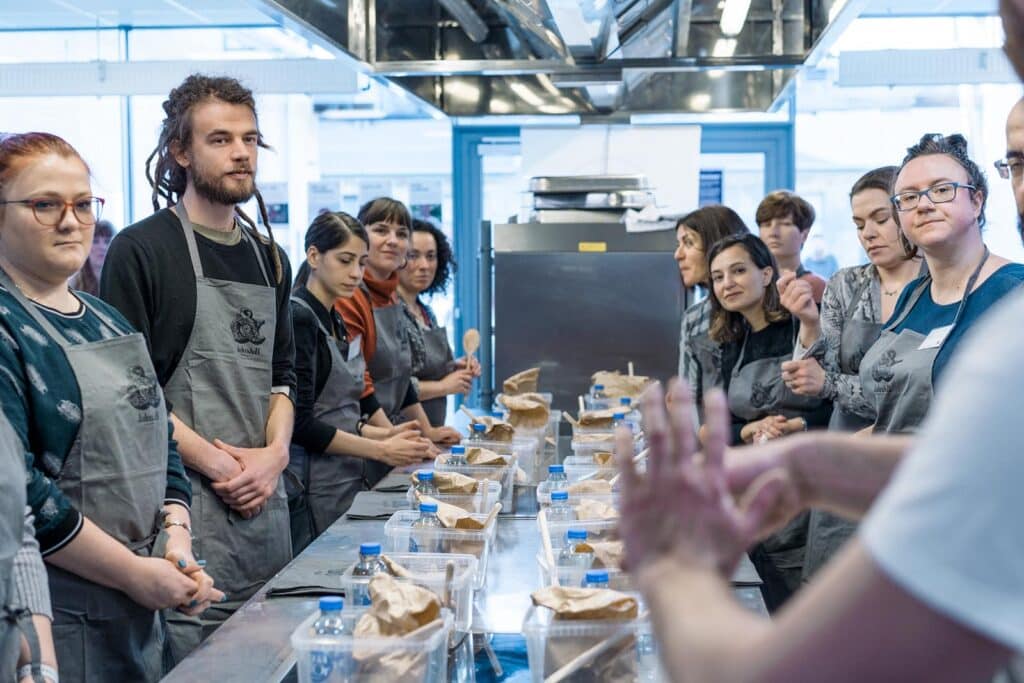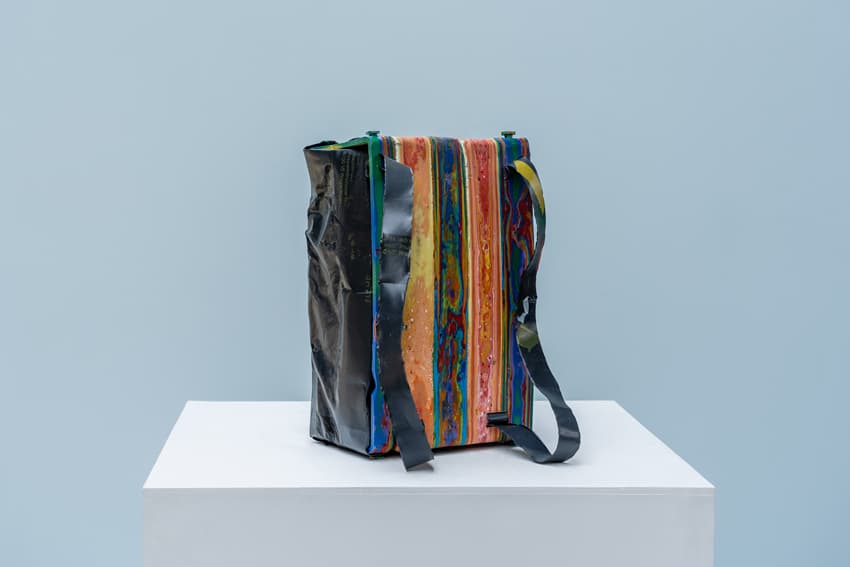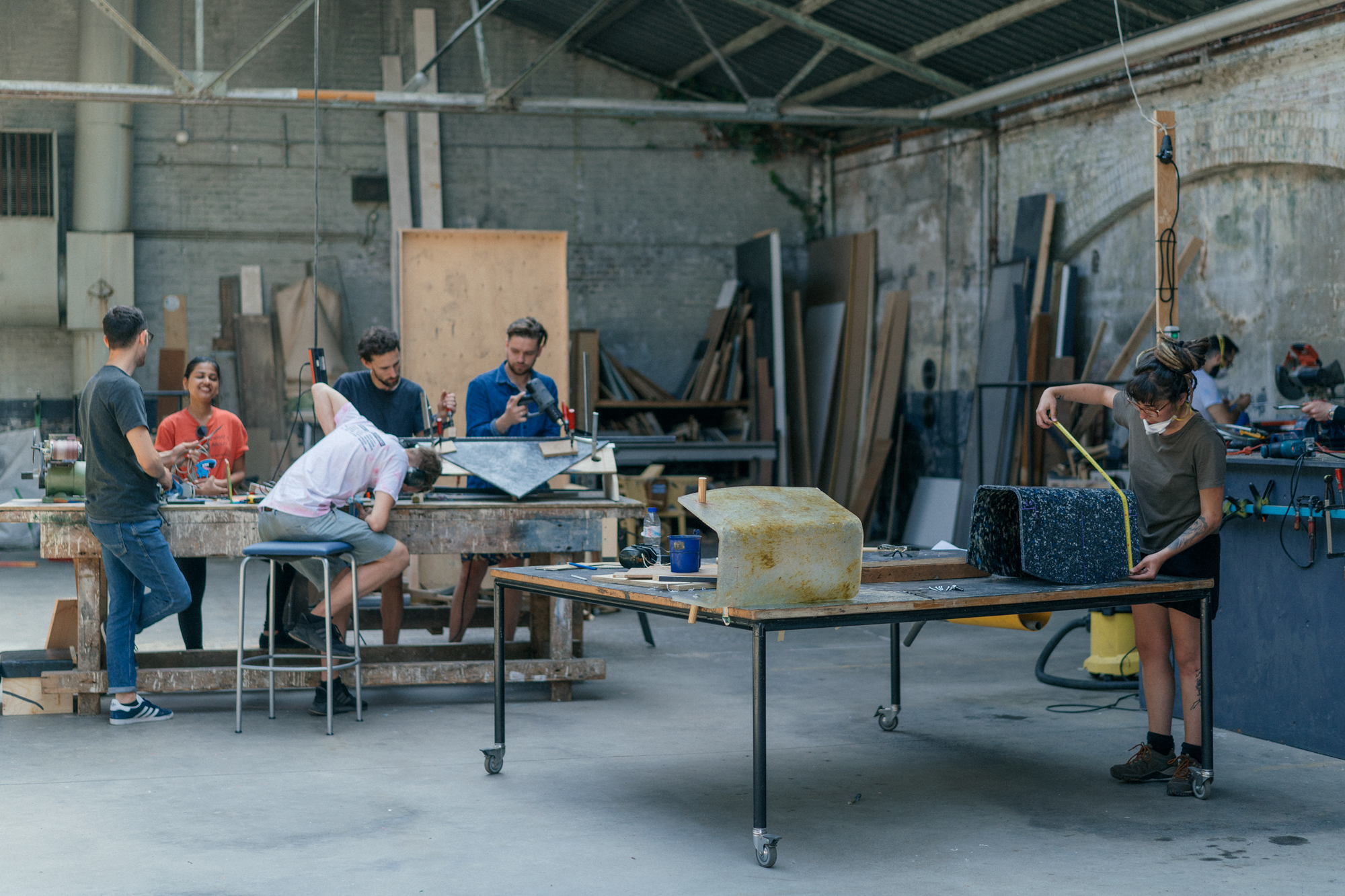
The people-centered approach toward a circular economy.
Circular communities of practice pushing circular economy principles one step further
We live in an (unsustainable!) society which is governed by massive consumption in cities and results in negative global impacts such as contamination and increased CO2 levels. There is a need for a shift in the way we act, live and work to tackle humanity’s challenges and to navigate complexity. A change in paradigms, values, regeneration skills, and also in the solutions we develop to enable societies to thrive while simultaneously caring for the planet and future generations. In simple words, it is crucial to think about the circularity of the materials and products we produce and consume to achieve a more peaceful, inclusive, fair, happy, and sustainable future. While governments, large companies and institutions take an institutional perspective to the circular economy, Fab Lab Barcelona has decided to focus on the daily experience that takes place at the human scale.
What is a Fab Lab and why has Fab Lab Barcelona chosen to focus on the ‘personal‘ rather than an ‘institutional’ approach?
Fab Lab Barcelona is neither a regular fabrication laboratory nor an Ateneu de Fabricació Digital. We are a research and education centre, part of the Institute of Advanced Architecture of Catalonia, that creates opportunities for communities and citizens to improve global and local lives and livelihoods, including supporting a circular economy. In other words, we do not only tackle circularity efforts from a theoretical approach but we put into practice its principles as seen across our different projects. From Remix el Barrio, to Food Tech 3.0 Acceleration programme, or the Circular Maker Academy, our team is committed to actively linking circular economy principles and (digital) social innovation.
We are aware that the circular economy requires transformations on multiple scales and involving many actors. The change must be systemic; from individuals in their homes, to government strategies, or EU policy plans such as the Green Deal and the New European Bauhaus. This is why we are involved in many projects and create dialogues with all types of people, from citizens an companies to academic researchers and policy makers.
Our main focus is the communities of practice that involve both local and global actors. Fab Lab Barcelona supports the co-creation of circular solutions around specific challenges, creating safe spaces for citizens and communities to express their needs, to design, prototype and experiment solutions for transitions to happen and have a real and positive impact on their territories.
Makerspaces have the potential to engage people locally to create circular transitions. Fab Lab Barcelona is involved in an international research agenda within an outstanding network of partners. We combine the development of circular solutions locally in Barcelona with theoretical and practical discussions for the development of the notion of a circular community. We guide other labs to adopt circular principles and to co-produce the tools needed to implement local ecosystems of circularity in other cities and regions. You may find some examples of how we do this below.
What are circular economy principles from a community practice perspective?
A circular community of practice can be defined as a set of stakeholders that are engaged together to explore and experiment with circular and regenerative principles, looking for closing the loops of systems, repurposing, re-designing, re-manufacturing, reusing, recycling while better respecting natural ecosystems. Circular communities of practice may work in activities such as urban gardens or self-repair bike workshops, and they are composed of a diversity of people who not only share a circular approach to tackle societal challenges, but also a set of values such as openness, solidarity, a strong appetite for learning, and a resolution to become game changers.
As you can see below, these principles are often illustrated in many of the EU projects related to circular economic principles in which Fab Lab Barcelona is involved.
REFLOW, involving citizens to re-think business models in cities
REFLOW is working toward co-creating circular and regenerative resource flows in cities. The research project sets out to offer a new approach to a circular economy in urban areas. It aims to provide best practices aligning market and government needs in order to create favourable conditions for the public and private sector to adopt circular economy practices. REFLOW’s ambition is to offer open source tools and guidelines that other cities can adopt.
CENTRINNO, using heritage as a catalyst for social inclusion.
The EU-funded CENTRINNO project aims to develop and demonstrate strategies, approaches and solutions for the regeneration of industrial historic sites and areas as creative production and manufacturing hubs that stay true to the ecological challenges of our time. CENTRINNO aims to boost a diverse, inclusive and innovative urban economy that uses heritage as a catalyst for innovation and social inclusion and fosters circular management of resources.
SISCODE, moving from ideation to implementation
SISCODE advocates for “co-creation” as a bottom-up and design-driven phenomenon, that is flourishing in Europe in fab labs, living labs, social innovations, smart cities, and regions. The introduction of co-design methodologies and tools has been recognised as key to create a more inclusive approach in different design fields. SISCODE has run a specific local pilot named Remix El Barrio to promote the project ideas as a relevant interface to co-creation policies for circular economy, gathering local stakeholders to prototype materials, products and services to tackle the issue of food waste locally in Barcelona.
POP-MACHINA, creating communities in urban areas
The EU-funded POP-MACHINA aims to promote a more circular production paradigm, engaging communities, and promoting urban and community development achieved through collaborative production in cities. The project will create a network of existing and new communities in urban areas and use cutting-edge technologies (factory-of-the-future, blockchain) to engage urban planning, boost social dialogue, recognise local needs in training and skills development. The partners will share open source practices and develop a framework for implementing circular collaborative production in urban areas.
FoodSHIFT 2030, launching a citizen-driven transition of the food system in Europe
FoodSHIFT 2030 aims to explore pathways of innovative and citizen-driven food system approaches in cities, and launch an ambitious citizen-driven transition of the European food system towards a low carbon circular future, including a shift to less meat and more plant based diets. FOODSHIFT combines improving social and technological readiness levels with new circular business models based on the idea of food citizenship. In Barcelona, the Food Tech 3.0 lab is combining food, innovative tech, and new circular business models to accelerate 10 local initiatives.
Distributed Design Platform, changing the design and production paradigm
The Distributed Design Platform keeps fostering the development and recognition of emerging European maker and design culture by supporting makers, their mobility and circulation of their work on the Distributed Design Platform. This Creative Europe co-funded initiative aims to develop and promote the connection between designers, makers and the market (maker to market) by strengthening the creative community.
What is a fab lab’s role within these communities of practices for a circular economy?
Across REFLOW, CENTRINNO, SISCODE, POP-MACHINA and The Distributed Design Market Platform projects, our team supports research activities and the local implementation of circular economy practices at the urban scale. This is based on communities’ previous knowledge and consolidates previous efforts by Fab Lab Barcelona in deploying the Fab City Barcelona (part of the Maker District and a prototype in Poblenou) and the Fab City Global Initiative. We are a group of people who share a common concern for a more circular and robust economy which also includes local communities and citizens. We use all the resources at our disposal, prototyping and testing solutions with local communities, developing research and applying innovative technologies and exploring new theories to support the circular transition our society needs.
If you want to know more about circular economy on a citizen innovation laboratory, you may also check the interview from Hogar Circular by Beatriz Quintana with Alessandra Schmidt, Fab Lab Barcelona’s EU Research Coordinador, ¿Sabes lo que es un laboratorio de innovación ciudadana? (in Spanish). The latest information in Circular Economy can be found on Hogar Circular in various channels (Spotify, Ivoox, Instagram).
What can I do as a citizen to support a new, more resilient economic system?
Start by becoming informed, then you may choose to join circular communities at your scale and see what others are doing in this space. Try zero waste at home! Participate in workshops of Precious Plastic or food waste material makers, organise a repair party or participate in building your future career in line with your circular values.
Learn more about our EU projects, just mentioned above! follow our socials, and stay tuned for more of our Education Programmes:
Master in Design for Emergent Futures
Author

Alessandra Schmidt
Action Research Lead
Alessandra Schmidt is an administrator and a researcher with a critical approach to social development and management sciences. Her academic background is in Business Administration, having graduated from the Federal University of Parana State, and then specialising in Social Entrepreneurship at INSEAD (France). She has undertaken her first Master in Social Development Practice (MSc), offered by The Bartlett Development Planning Unit (DPU) at the University College London (UK); and a second Master in Management Sciences from ESADE (MRes), where she currently holds a PhD Candidate position (Spain). Before moving to the UK/EU, she co-founded We.Flow (https://weflow.global/), a social enterprise consulting and training for social impact. She keeps her contribution ongoing as part of their Advisory Board. We.Flow is based in Brazil, where Alessandra is originally from. At Fab Lab Barcelona, Alessandra is a researcher on many EU-funded projects, including Distributed Design Platform, Make Works, Pop-Machina, Reflow, FoodSHIFT and FOSTER.
